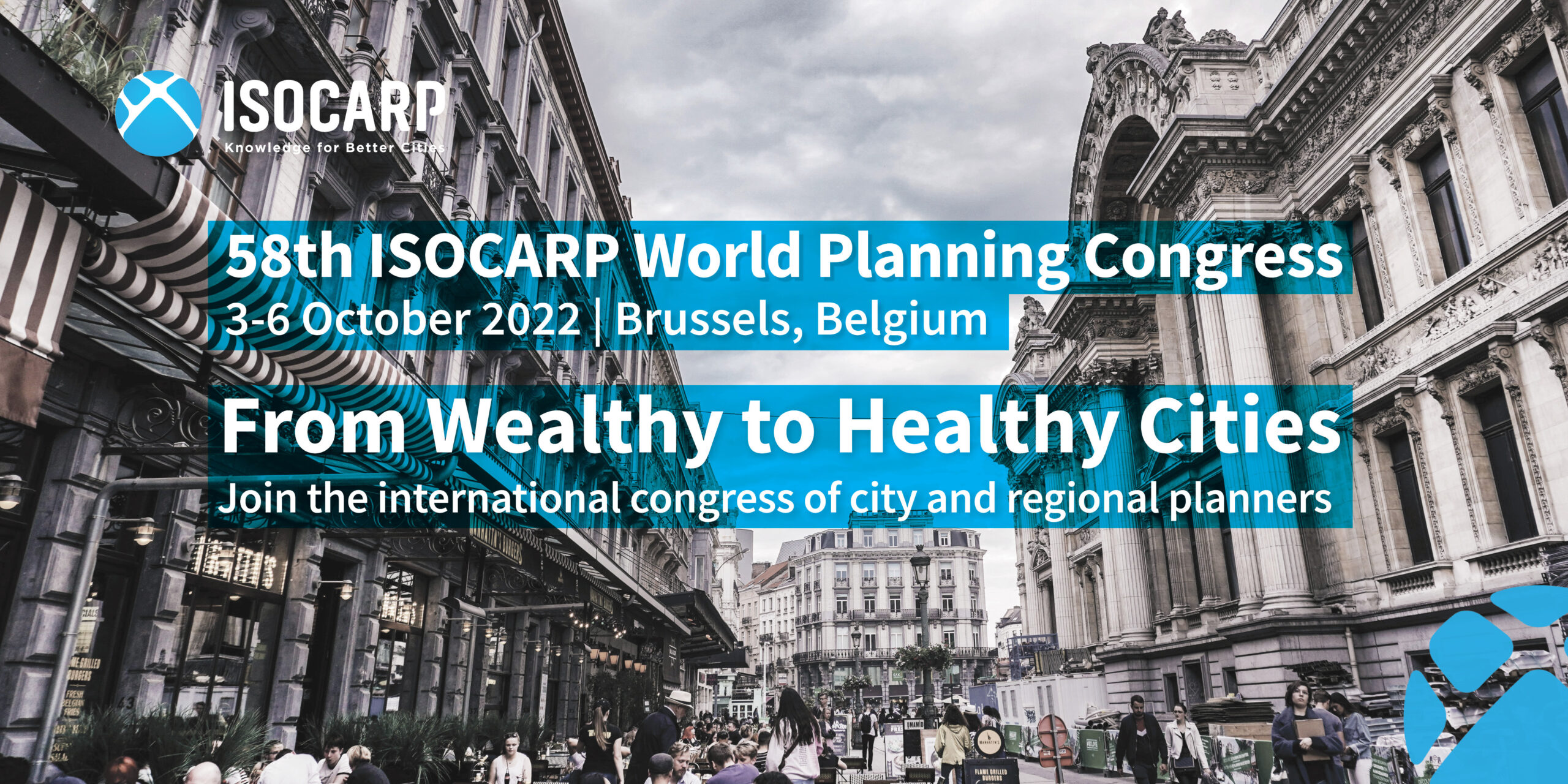
From Wealthy to Healthy Cities
Urbanism and planning for the well-being of citizens
In Search of a New Planning Agenda for Urban Health, Socio-Spatial Justice and Climate Resilience
The past decades witnessed a flow of unexpected challenges, with profound impacts on social, economic, and environmental spheres, deepening inequalities between places and between different segments of society, and the sharpening of trends of uneven development, culminating in widespread urban crisis. Urgent issues such as climate change, bio-cultural diversity, poverty, homelessness, food security, natural disasters, migration, urban refugees, and gender inequality have become crosscutting concerns in many countries.
The COVID-19 pandemic has only exacerbated these global challenges. Cities around the globe are trying to cope with the impacts of the health crises triggered by the pandemic, which shone a powerful light on other forms of inter-connected crises induced by longstanding pro-growth policies. The pandemic health crisis has intensified existing socio-spatial inequalities and vulnerabilities, denoting a paradigm shift that urges us to rethink the way we build our cities. Improving the quality of our living environment can foster a more sustainable and resilient approach to public health, putting prevention and promotion of health at the forefront while reducing fossil fuel reliance.
There is a clear need for a vision for a new era of pandemics and long-term plans for recovery. In that sense, the pandemic also opens a window of opportunity for transformative action. Many cities are already debating how to respond to complex issues of environmental, health, and socio-spatial injustices and to “(re)-build better”.
Highlighting such a paradigm shift, ISOCARP and the Brussels-Capital Region will welcome city-regions in both Global North and South to come together at the 58th ISOCARP World Planning Congress to advocate for transformative action based on equitable, resilient, and inclusive planning for the well-being of our societies.
The Congress will provide an opportunity to envision ways to heal and start “building better” with healthy people, healthy planet, healthy economy, and healthy governance as the driving force to bring us closer to an economy that is socially, spatially and ecologically just.
The Congress Tracks will be structured around the following sub-themes:
- Healthy Planet: nature-based solutions, climate adaptation and mitigation, decarbonising the city-region, biodiversity in the city, green and blue corridors, urban metabolism, water and river management…;
- Healthy People: place-based physical and mental health and well-being, bio-cultural diversity, affordable quality housing and mixed-use neighbourhoods, the city as a gym, local organic food networks, inclusive urban and social services, 15’ neighbourhoods and 45’ city-regions, quality public spaces and other commons, communities responsive to the needs of vulnerable populations such as children, women, people with disabilities, aging citizens, immigrant, and refugees…;
- Healthy Economy: place-based circular economy, vibrant cultural and creative local industries, well-being at work, planning for place-based growth and de-growth, decarbonised energies, economy of craft, local resources based industries…;
- Healthy Governance: how to integrate health in urban planning and governance, with data, indicators, planning tools, health impact assessments…
These sub-themes are not final, but will serve as a starting point for the on-going creative collaboration between the Congress Team, led by General Rapporteur Zeynep Enlil; the Brussels Local Organizing and Advisory Committees; and ISOCARP’s Congress Committee and Scientific Committee.
Building on the theme and outcomes of the 57th ISOCARP World Planning Congress on “Planning Unlocked: New Times, Better Places, Stronger Communities,” this year’s Congress will further explore a “New Planning Agenda” to foster the implementation of the United Nations New Urban Agenda as well as the European Territorial Agenda and related European Green Deal, both centred on the notion of “healthy cities for all”. To that end, the hybrid Congress format will bring us together across a variety of online and in-person knowledge-sharing and discussion forums, including sessions and paper presentations, Special Sessions, Roundtables, and Mobile Workshops and ‘Walkshops’ in and around Brussels, reviving the ‘sense of community and place’ we dearly missed during the lockdowns and enjoyed so much during the in-person Congress in Doha last
year.
The formal Call for Proposals for Congress contributions — Papers, Session Presentations, Special Sessions, and Roundtables — will be announced in late March. In the meantime, we welcome you to take a look at the Congress theme and sub-themes, and opportunities for being a part of the Brussels Congress.
Papers & Presentations
Submit proposals on topics relating to the Congress theme & sub-themes.
From Wealthy To Healthy Cities: Healthy Planet / Healthy People / Healthy Economy / Healthy Governance.
Special Sessions
Explore innovative, cross-cutting topics such as: New Urban Agenda / New Planning Agenda / Women in Planning / Planning Education / Planning Aid / Eurodelta / Citizen participation…
Roundtables
Bring together diverse city-changers in inclusive Roundtable discussions: Place Leaders / Planners and Design Professionals / Global South and North / Local Communities and Stakeholders…
Mobile Workshops & ‘Walkshops’
Organization of mobile workshops and “walkshops” is underway by the Local Brussels Organizing Committee that will allow Congress participants to discover meaningful spaces and places in the Brussels region, such as: Urban Renewal Programs / Public, Green and Natural Spaces / Urban Agriculture / Development of the Canal Area and Strategic Development Zones / Redevelopment of Downtown and Historic Areas / Railway and Infrastructure Zones / EU District…